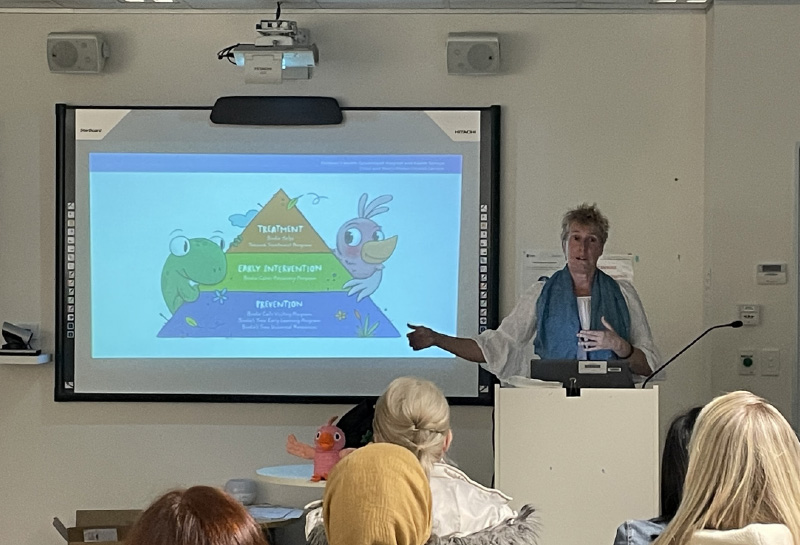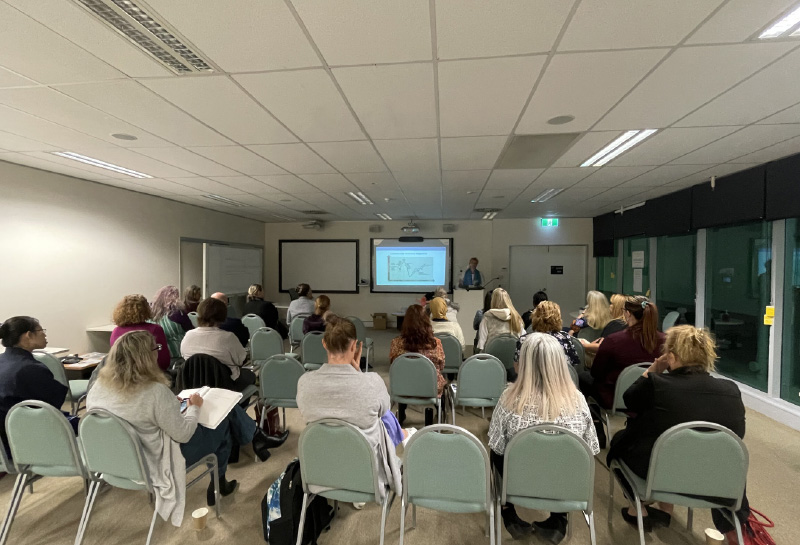In January 2023, the Mental Health Professionals’ Network1 (MHPN) in partnership with the Metro South Addiction and Mental Health Services2 (MSAMHS) Disaster Flood Team, established the Metro South Disaster Mental Health Recovery Network.
The MHPN's aims are to update and share knowledge and skills of professionals and frontline workers from different local services and sectors relating to disaster recovery and preparation in the mental health context. Following devastating floods in South East Queensland in 2022, the Metro South practitioner community (covering south of Brisbane, Redland, Logan and east of Scenic Rim local government areas) welcomed the development of the Metro South Disaster Mental Health Recovery Network as it allowed it to make connections and access peer support and professional development.
The mental health perspective
The first network meeting was held in February with the theme: Disaster from a mental health perspective, with Dr David Lie as guest speaker. Dr Lie was the Clinical Director with MSAMHS and provided psychiatric consultation to the MSAMHS Disaster Flood Team. Dr Lie examined the following topics in his presentation:
- What is a disaster from a mental health perspective?
- What are the common psychosocial and psychiatric consequences?
- How do these differ from reactions to stress and trauma outside of the disaster context?
- Who is most at risk?
- What can we learn from disasters in terms of innovative approaches to mental health care?
This meeting brought together 18 people including social workers, art therapist, nurses, psychologist, disability services worker, relationship counsellor/family therapist and emergency services workers.

Dr Andrea Baldwin led the family-oriented second network session.
Image: MSAMHS
Supporting babies and young children
The network’s second meeting was held in May 2023 with a theme: Birdie’s Tree – Supporting babies and young children through natural disasters and disruptive events. This had a family-oriented focus and was presented by Dr Andrea Baldwin, Psychologist and Service Development Leader at the Queensland Centre for Perinatal and Infant Mental Health.
Expectant and new parents, babies and young children can be vulnerable during times of disasters and disruptive events like floods, fires, cyclones, heatwaves and pandemics. The early years are a critical period for brain development when the foundations are laid for lifelong social emotional wellbeing. Supporting young people’s mental health through the preparedness, response and recovery phases of disaster events is still a new area of research and practice. This meeting provided insight into the work led by the Queensland Centre for Perinatal and Infant Mental Health and Birdie’s Tree.
This session reviewed research evidence on the short- and long-term effects of disaster events on young children’s mental health and wellbeing, risk and protective factors and ‘what helps’. The hands-on care model and resources were also introduced to meeting participants.
The session covered:
- the Birdie’s Tree stepped care model, from mental health promotion and prevention through intervention to trauma treatment
- the Birdie’s Tree resources, including 11 storybooks, the Fun with Birdie activity book, Relaxing with Birdie mindful movement routine, therapeutic games, toys, puppets and other resources
- ways of using the Birdie’s Tree resources with parents and caregivers, children, families and communities.
At the meeting’s conclusion, Birdie’s Tree kits (books, puppets and print resources) were gifted to participants. Twenty-five people attended, including recurring attendees and new network members. A diverse range of practice areas was represented such as art psychotherapy, social work, nursing, carer/support work, education, psychology, disability services, relationship counselling/family therapy, community engagement, service integration and emergency services.

Logan practitioners attended the Birdie’s Tree – Supporting babies and young children through natural disasters and disruptive events meeting.
Image: MSAMHS
Moving forward
Over 5 months, the network grew to connect 64 local practitioners, providing a space for them to network, learn and share resources and experiences. The network will meet quarterly in Logan Central and cover issues determined by its coordinator and members. Establishing a recovery-focused mental health network is a first as MHPN helps frontline workers and mental health professionals to improve the mental health care response. The valuable skills and experience learnt are a useful toolkit for future preparedness, response and recovery across the country.


